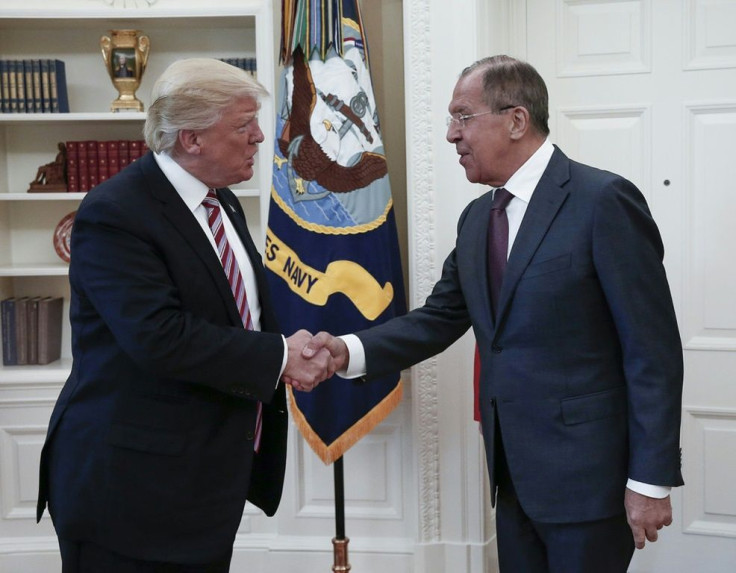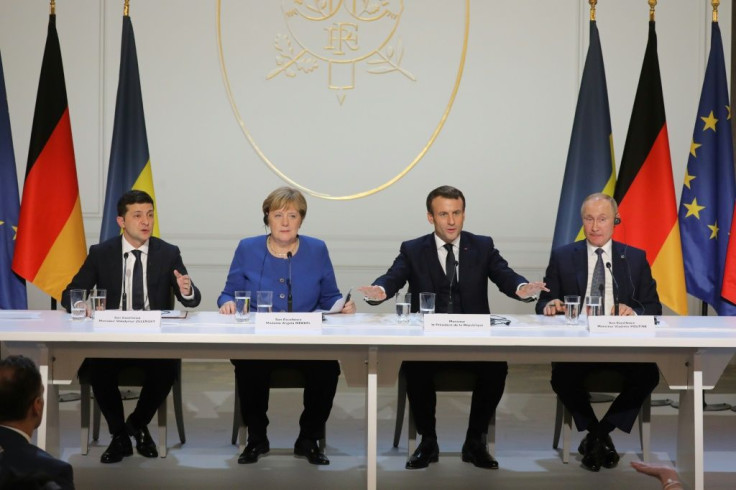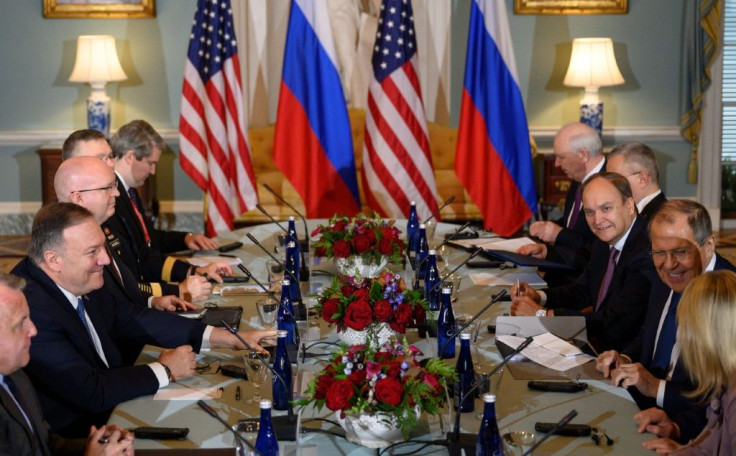Russia's Top Diplomat Opens US Talks Amid Impeachment

Russian Foreign Minister Sergei Lavrov on Tuesday opened a visit to Washington in which he will meet Donald Trump, the very day when Democrats unveiled impeachment charges against the president.
The timing marks a redux of the veteran Russian diplomat's last visit to Washington in May 2017, when Trump was fighting off allegations that he cooperated with Russia and was accused of sharing classified information with Lavrov.
Lavrov began the day of talks by meeting with Secretary of State Mike Pompeo, who said the Trump administration was determined to pursue its work despite the politics at home.
"We didn't pick this date to coincide with the process on Capitol Hill, but we can't allow the zaniness that's taking place on Capitol Hill to impact our job," Pompeo told conservative broadcaster One America News on Monday.
Pompeo said that he would look to find ways to work with Russia including on improving business ties and on arms control.
Russian President Vladimir Putin has called for the quick renewal, even by the end of the year, of the New Start treaty, the last remaining major arms treaty between the United States and Russia.
Negotiated under Trump's predecessor Barack Obama, the treaty which expires in February 2021 obligated the two powers to halve their arsenals of strategic nuclear missile launchers.

The Trump administration, while not ruling out an extension, wants a new treaty to include China, which has a quickly growing, but still much smaller, arsenal than Russia and the United States.
The United States earlier this year withdrew from the Cold War-era Intermediate Range Nuclear Forces, which limited missiles that could hit European cities, after saying that Moscow was in violation.
Lavrov is also expected to discuss the hotspots of Iran, North Korea and Syria -- where Russia, which backs President Bashar al-Assad, has become even more pre-eminent as the top foreign player after Trump pulled US troops.

The talks in Washington come a day after Putin held a landmark first meeting with Ukraine's president, Volodymyr Zelensky, although they did not reach any breakthrough.
The pair met in Paris alongside the presidents of France and Germany, who are leading efforts to end a five-year war in which Ukraine is battling Russian-backed separatists.
The impeachment inquiry is linked to the war, with House Democrats unveiling charges that Trump abuses his power and obstructed Congress.
The White House delayed nearly $400 million in military aid sought by Ukraine to fight the separatists as Trump asked Zelensky to announce an investigation into Joe Biden, a leading Democratic candidate seeking to challenge him in 2020 elections.
Trump, in a phone call to Zelensky that triggered the impeachment inquiry, also sought an investigation into a conspiracy theory debunked by US intelligence that Ukraine -- not Russia -- interfered in the 2016 election.
US intelligence says that Russia tried to sway the 2016 election to Trump, especially through manipulation of social media, but an extensive probe by former FBI chief Robert Mueller found insufficient evidence to accuse the Trump campaign of conspiring with Moscow.
After his last visit in May 2017, The Washington Post reported that Trump shared classified information with Lavrov and Russia's then ambassador to Washington about a threat from the Islamic State group.
The US ally that provided the information, which led to restrictions on laptops in the cabins of commercial flights from the Middle East, did not authorize its sharing, the report said.
The White House denied the accusation but Trump later insisted he had the "absolute right" to share "facts pertaining to terrorism and airline flight safety."
© Copyright AFP 2024. All rights reserved.





















